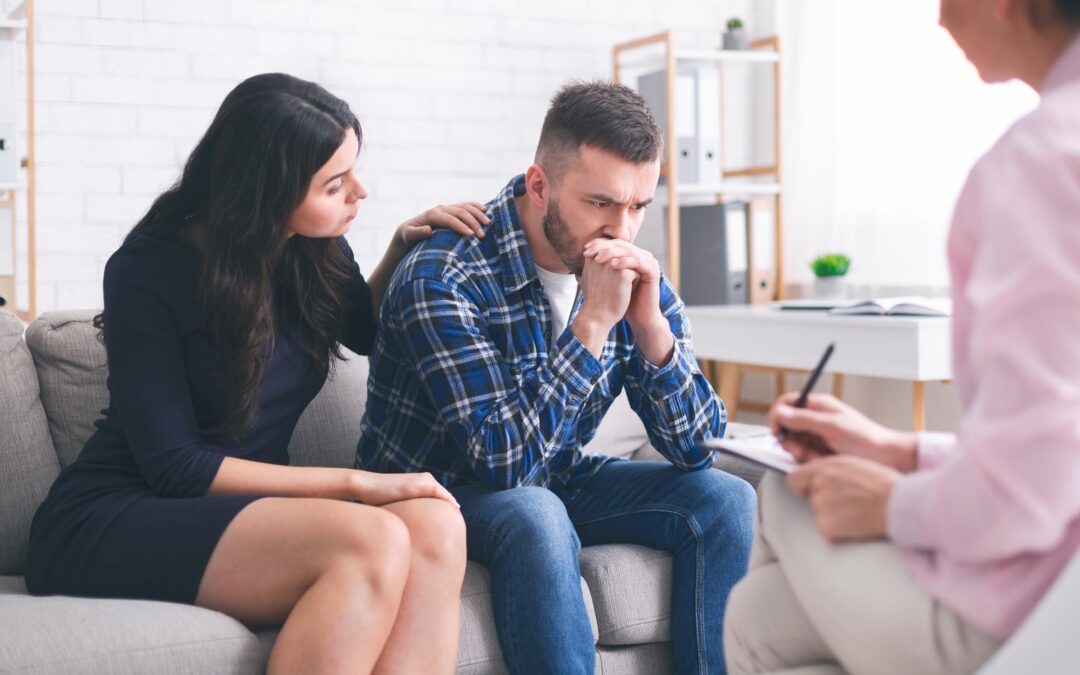Understanding Guilt and Remorse in Gambling
Guilt and remorse are common emotional responses for individuals struggling with gambling addiction. These feelings often emerge after realizing the negative consequences of their actions.
Differences Between Guilt and Remorse
While guilt and remorse are related, they have distinct meanings:
- Guilt from gambling often arises when a person believes they have violated their own ethical standards or let down others. For instance, spending money meant for bills on gambling can therefore lead to intense guilt.
- Remorse after gambling: Remorse is the deep regret or sorrow for the wrongs committed. It goes beyond guilt, often including a strong desire to make amends. A gambler might feel remorseful for hiding their addiction from loved ones or lying about their financial situation.
How Guilt and Remorse Manifest
Gambling-induced guilt and remorse can manifest in various ways:
- Emotional symptoms: Anxiety, depression, irritability, and self-loathing.
- Furthermore, behavioral changes may include avoiding social interactions, neglecting responsibilities, or even engaging in further gambling as an escape.
- Physical symptoms: Insomnia, headaches, or other stress-related health issues.
Understanding these feelings is crucial to address the underlying issues that contribute to gambling addiction. Recognizing and acknowledging guilt and remorse can be a first step towards seeking help and making positive changes.
The Cycle of Gambling Addiction: Obsession, Guilt, and Remorse
The cycle of gambling addiction often begins with an obsession with gambling. As a result, this obsession can lead to compulsive behaviors, where the individual feels an overwhelming urge to gamble, even though they are aware of the potential consequences. The relentless pursuit of the next win or the hope of recovering losses can dominate their thoughts, making it difficult to focus on anything else.
Feelings of guilt frequently accompany this obsession. When gamblers lose money, they may experience intense self-reproach and regret. This guilt can stem from realizing the negative impact their actions have on themselves and their loved ones. The mental burden of knowing they have let down family members or jeopardized financial stability adds to the emotional turmoil.
In particular, escape gamblers are particularly susceptible to this cycle. They frequently use gambling as a way to avoid dealing with underlying issues, such as anxiety, depression, or stress. Emotional triggers for escape gamblers include:
- Financial hardship: Trying to win money to solve financial problems.
- Emotional distress: Using gambling as a distraction from personal issues or trauma.
- Social isolation: Seeking solace in gambling due to loneliness or lack of social support.
By understanding these dynamics, it’s clear how the interplay between obsession and guilt perpetuates the cycle of gambling addiction. This behavioral addiction is complex and requires comprehensive strategies for recovery and change.
Phases of Gambling Addiction and Their Impact on Guilt
Understanding the different phases of gambling addiction reveals how each contributes to feelings of guilt. The stages often follow a predictable pattern, each with its own emotional and psychological triggers.
Losing Phase
In the losing phase, the immediate aftermath of losses typically brings a surge of guilt. Gamblers may feel regret for the money spent and the time wasted. This phase is characterized by:
- Denial: Initially, there is a refusal to accept the seriousness of losses. This denial can prevent individuals from acknowledging the full extent of their financial and emotional damage.
- Chasing Losses: Additionally, there is a tendency to attempt to recover lost money, which usually leads to deeper financial trouble. This behavior often exacerbates the situation rather than resolving it.
- Growing Anxiety: Furthermore, increased stress and worry about financial stability become prominent. As financial issues mount, anxiety about the future intensifies, making it harder to find a way out of the cycle.
Desperation Phase
In the desperation phase, gamblers may seek bailouts or engage in illegal acts to cover their losses. The guilt here can be overwhelming due to:
- Betrayed Trust: Lying to family and friends or committing fraud.
- Financial Ruin: Depleting savings or accumulating significant debt.
- Escalating Desperation: Taking increasingly risky bets to recoup losses.
Hopeless Phase
The hopeless phase is where feelings of despair can lead to suicidal ideation. Guilt intensifies as gamblers confront the full extent of their actions:
- Despair: Feeling that there is no way out of the financial and emotional turmoil.
- Isolation: Withdrawing from relationships due to shame and guilt.
- Suicidal Thoughts: In extreme cases, feeling that ending one’s life is the only escape from guilt.
Recognizing these phases can help in identifying and addressing gambling addiction early, mitigating severe consequences related to guilt and mental health. It’s important to note that compulsive gambling is a serious condition that requires professional help.
Consequences of Gambling-Induced Guilt on Mental Health and Relationships
Gambling-induced guilt can cause significant disruptions in various aspects of an individual’s life. This overwhelming sense of remorse often worsens existing financial difficulties, leading to a cycle of debt and despair.
Life Disruptions Caused by Gambling-Related Guilt
Individuals dealing with gambling addiction frequently encounter severe stress and anxiety due to the constant worry about financial ruin from gambling. The emotional toll can manifest as:
- Sleep disturbances: Insomnia or nightmares.
- Mental health issues: Increased risk of depression and anxiety, which may require comprehensive care for mental health such as those provided by Advanced Therapy Center in Massachusetts.
- Physical health problems: Stress-related conditions like hypertension.
Exacerbation of Financial Difficulties
The role of guilt in worsening financial difficulties cannot be underestimated. As individuals attempt to hide their gambling habits, they may engage in risky financial behaviors such as:
- Taking out multiple loans, leading to unmanageable debt.
- Withdrawing savings, depleting crucial emergency funds.
- Engaging in illegal activities like theft or fraud to cover losses.
Impact on Relationships
Damaged relationships due to gambling are another profound consequence. The ongoing remorse and associated secrecy often lead to:
- Breakdown of trust: Loved ones feel betrayed by continuous lies.
- Emotional distance: Strained communication and growing resentment.
- Separation or divorce: In severe cases, leading to family disintegration.
While it’s natural to experience guilt after gambling, it’s important to recognize its impact and seek help. For those supporting someone with a gambling problem, understanding how to provide assistance can be crucial. Resources such as the Gateway Foundation’s guide on helping someone with a gambling problem offer valuable insights.
Seeking professional assistance could be a vital step towards recovery from both the addiction and its associated mental health conditions, which are treated at Advanced Therapy Center using evidence-based therapies for personalized care.
Coping Strategies for Managing Guilt After Gambling Losses
Dealing with guilt after gambling losses can be challenging, but various coping strategies can help you manage these feelings effectively.
Mindfulness Practices
Implementing mindfulness practices is a powerful way to address and alleviate guilt. Techniques such as:
- Meditation: Helps you focus on the present moment and reduces anxiety.
- Breathing exercises: Calm your mind and regulate emotions.
Engaging in Positive Activities
Engaging in positive activities also plays a crucial role in mitigating guilt. Activities like:
- Exercise: Physical activity releases endorphins, boosting your mood.
- Hobbies: Engaging in creative or recreational pursuits can divert your mind from negative thoughts.
Embracing Self-Compassion
Self-compassion is essential for overcoming feelings related to past mistakes. Embracing self-compassion involves:
- Acknowledgment: Accepting that everyone makes mistakes and allowing yourself to learn from them.
- Forgiveness: Being kind to yourself and understanding that guilt is a natural response but doesn’t define you.
Practicing these coping strategies for guilt after gambling losses can significantly improve your mental well-being, helping you move forward positively.
Seeking Help for Gambling Addiction: Support Groups and Therapy Options
Seeking help for gambling addiction is crucial for recovery. One of the most effective ways to gain support is through support groups like Gamblers Anonymous (GA) meetings. These groups provide a safe space to share experiences and receive encouragement from others who understand your struggle.
Evidence-based therapies are also pivotal in managing addiction:
- The Cognitive-Behavioral Therapy (CBT) focuses on changing negative thought patterns and behaviors. It helps identify the root causes of addiction and develop coping mechanisms.
- Dialectical Behavior Therapy (DBT) aids in managing emotions and behaviors, enhancing communication, and building healthier relationships.
Engaging in these therapies can significantly aid in overcoming guilt and remorse associated with gambling. If you’re questioning, “Should I feel remorse after gambling?”, it’s important to acknowledge that feelings of remorse are natural but manageable with the right support and treatment options.





